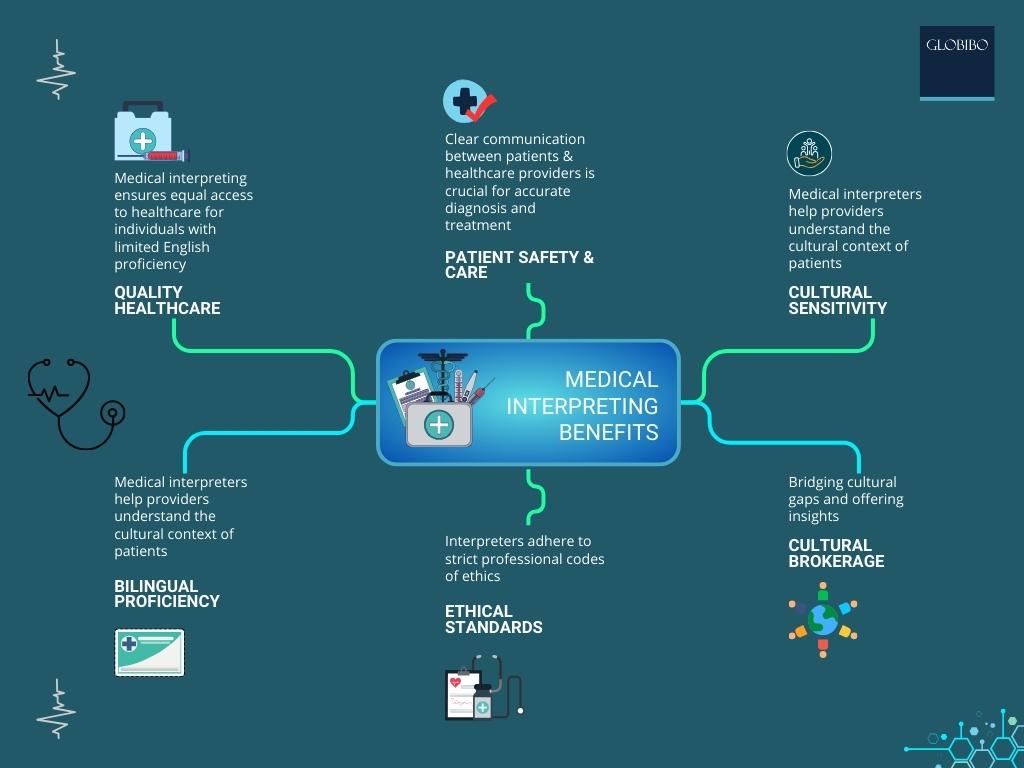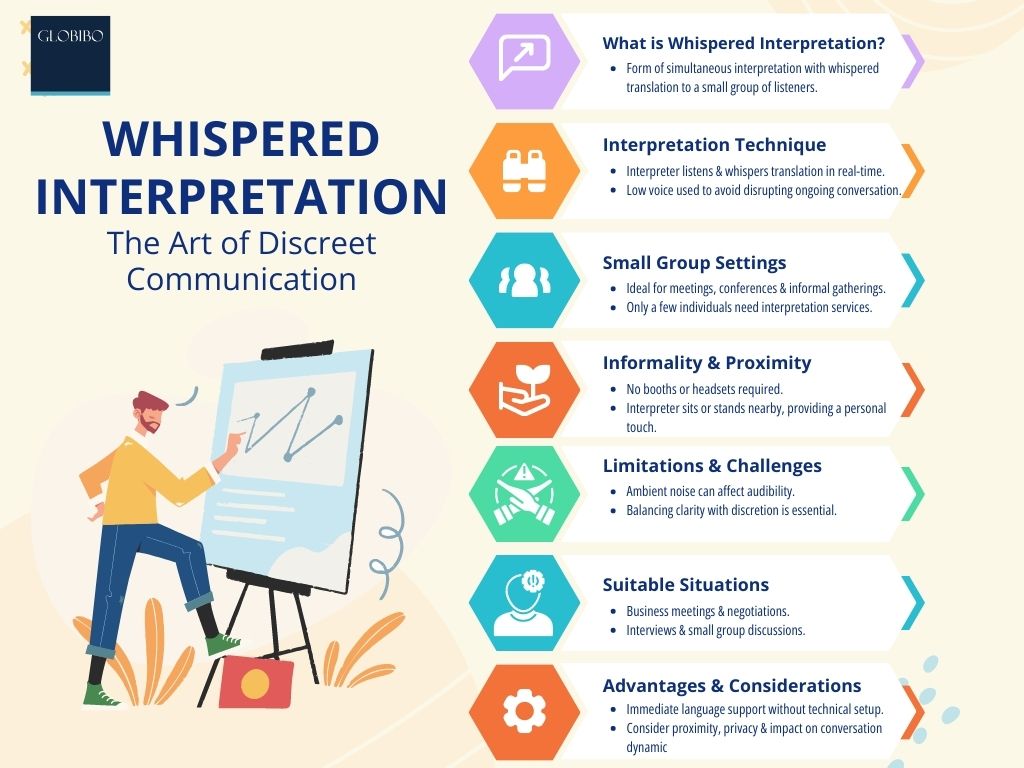
In the diverse and multicultural landscape of healthcare, effective communication between healthcare providers and patients is paramount. However, language barriers can hinder understanding and compromise the quality of care. This is where medical interpreting plays a vital role. Medical interpreters bridge the gap between different languages and cultures, facilitating accurate and culturally sensitive communication in healthcare settings. In this article, we will demystify the field of medical interpreting and explore its significance in facilitating effective cross-cultural healthcare communication.
Introduction
In healthcare settings, effective communication is essential for accurate diagnosis, treatment, and patient satisfaction. However, when patients and healthcare providers do not share a common language, communication becomes challenging. Medical interpreting provides a solution by enabling communication between patients and providers who speak different languages.
The Role of Medical Interpreters
Medical interpreters are language professionals trained to facilitate communication between healthcare providers and patients with limited English proficiency. They serve as intermediaries, conveying messages accurately and maintaining confidentiality. Medical interpreters ensure that patients can fully understand their medical conditions, treatment options, and instructions, while healthcare providers can gather accurate information and provide appropriate care.
Ensuring Accurate Communication
One of the primary goals of medical interpreting is to ensure accurate communication between patients and healthcare providers. Interpreters listen carefully to the speaker’s message and render it faithfully in the target language. They convey the meaning, tone, and nuances of the original message while maintaining impartiality and neutrality. Accurate communication is crucial for proper diagnosis, treatment, and informed decision-making.
Preserving Cultural Sensitivity
Medical interpreters play a crucial role in preserving cultural sensitivity in healthcare communication. They understand and respect the cultural backgrounds and beliefs of both patients and providers. Interpreters facilitate the exchange of cultural information, ensuring that healthcare providers deliver care in a manner that respects patients’ cultural values and preferences. This helps foster trust and cooperation between patients and providers.
Enhancing Patient-Centered Care
Medical interpreting enhances patient-centered care by enabling patients to actively participate in their healthcare journey. Interpreters ensure that patients can express their concerns, ask questions, and provide accurate medical histories. By facilitating effective communication, medical interpreters help healthcare providers better understand patients’ needs, preferences, and goals, leading to more personalized and patient-centered care.
The Skills and Qualities of Medical Interpreters
Medical interpreting requires a unique set of skills and qualities. Interpreters must have a high level of proficiency in both the source and target languages, including medical terminology. They need excellent listening and memory retention skills to accurately convey messages in real time. Cultural competence, empathy, and professionalism are also vital qualities for interpreters to establish trust and create a comfortable environment for patients.
Overcoming Challenges in Medical Interpreting
Medical interpreting comes with its own set of challenges. Interpreters may encounter complex medical terminology, sensitive topics, or emotionally charged situations. They must navigate these challenges while maintaining accuracy, impartiality, and confidentiality. Additionally, interpreters may face challenges related to cultural differences, ethical dilemmas, and managing potential biases. Ongoing professional development and support systems are crucial to address these challenges effectively.
Training and Certification for Medical Interpreters
To ensure competency and professionalism, medical interpreters undergo specialized training and seek certification. Training programs cover language skills, medical terminology, interpreting techniques, ethics, and cultural competence. Certification programs assess interpreters’ skills and knowledge through rigorous examinations. Employers often prioritize certified interpreters to ensure high-quality language services.
The Future of Medical Interpreting
As healthcare becomes increasingly diverse, the need for qualified medical interpreters continues to grow. Technological advancements, such as video and remote interpreting, are shaping the future of medical interpreting. These innovations improve access to interpreting services, especially in rural or underserved areas. However, it is essential to maintain the human element of interpreting to ensure accurate comprehension and effective communication.
Conclusion
Medical interpreting is an invaluable service that facilitates effective cross-cultural healthcare communication. Interpreters ensure accurate and culturally sensitive communication, enhancing patient-centered care and promoting positive health outcomes. With the right skills, training, and certification, medical interpreters play a vital role in breaking down language barriers and fostering meaningful connections between patients and healthcare providers.
For More Details Visit: https://www.globibo.com/
Frequently Asked Questions (FAQs)
What is medical interpreting?
Medical interpreting is the process of facilitating communication between patients and healthcare providers who speak different languages. Medical interpreters help convey messages accurately and preserve cultural sensitivity in healthcare settings.
Why is accurate communication important in healthcare?
Accurate communication in healthcare is crucial for accurate diagnosis, treatment, and patient satisfaction. It ensures that patients understand their medical conditions, treatment options, and instructions, while healthcare providers gather accurate information to provide appropriate care.
What skills do medical interpreters need?
Medical interpreters need a high level of proficiency in both the source and target languages, including medical terminology. They require excellent listening and memory retention skills, cultural competence, empathy, and professionalism.
What is the role of medical interpreters in patient-centered care?
Medical interpreters enhance patient-centered care by enabling patients to actively participate in their healthcare journey. They ensure that patients can express their concerns, ask questions, and provide accurate medical histories, allowing healthcare providers to better understand patients’ needs, preferences, and goals.
What is the future of medical interpreting?
The future of medical interpreting involves technological advancements, such as video and remote interpreting, which improve access to interpreting services. However, maintaining the human element of interpreting is essential to ensure accurate comprehension and effective communication.


